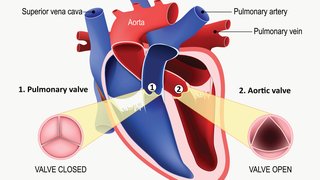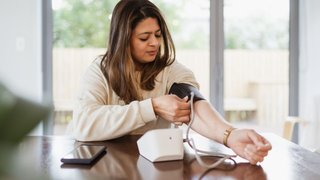
Patients who come to the clinic for cardiac evaluation may require certain tests to evaluate their heart. Here are the five exams your cardiologist most often orders, how they work and what these tests mean for you:
EKG (electrocardiogram)
- Time it takes: 5 minutes
- How it works: a few stickers are placed on your chest and attached with wires to a device that measures the electrical activity of the heart and prints out the EKG
- Detects:
-rate and rhythm of the heartbeat
-signs of a current or previous heart attack
-clues to structural abnormalities of the heart
Echocardiogram (echo or cardiac ultrasound)
- Time it takes: 45-60 minutes
- How it works: a sonographer places gel on your chest and presses gently with a probe to take ultrasound images/movies of your beating heart and blood flow
- Detects:
-size and function of both right and left ventricles (the pumping chambers)
-valve regurgitation (leakiness) and stenosis (narrowing)
-congenital heart defects (structural abnormalities present since birth)
-abnormal pressures within the heart
-abnormal fluid collection in the pericardium (sac around the heart)
Exercise stress test
- Time it takes: 30-60 minutes
- How it works: a continuous EKG is taken while you are exercising on a treadmill at various speeds and inclines to determine if there is adequate blood flow to your heart
- Detects:
-signs of inadequate blood flow to heart muscle with exercise, suggesting a significant blockage in one of the coronary arteries (blood vessels supplying the heart muscle)
-heart rate, blood pressure, and heart rhythm during exercise
-fitness level compared to others your age
Chemical stress test (at least 2 types: dobutamine stress echo or nuclear stress test)
- Time it takes: 1-3 hours
- How it works: if a patient is unable to walk adequately on a treadmill, an IV is placed and medication (dobutamine, which increases heart rate and blood pressure, or regadenoson, which dilates the blood vessels) is administered to simulate the stress of exercise; images are taken of the heart with ultrasound or a nuclear camera to estimate blood flow to the heart
- Detects:
-whether blood flow to heart muscle via coronary arteries is adequate or if there may be blockages limiting blood flow
Holter/event monitor
- Time it takes: 15-30 minutes to hook up
- How it works: electrical leads and a small device the size of a cellphone are attached via stickers to the chest and worn at home for 24 hours or up to 30 days
- Detects:
-heart rate and rhythm for a longer period of time
-the cause of someone's palpitations or other cardiac symptoms that occur outside of the doctor's office
Remember: It's a good idea to understand the purpose of any test you are taking or having done. Ask your doctor to explain if you have questions regarding your test.











